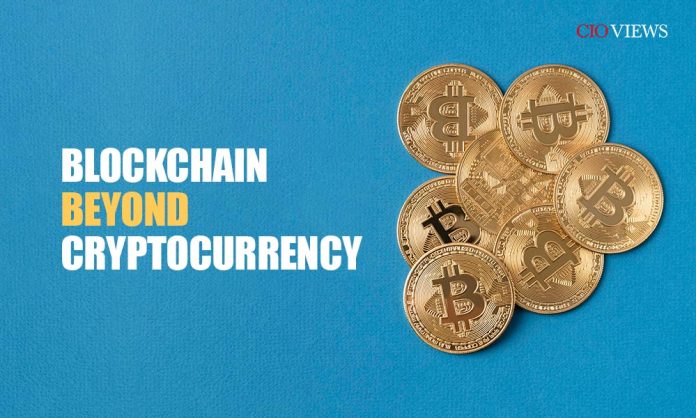In the past decade, blockchain technology has evolved far beyond its origins in cryptocurrency. While Bitcoin and Ethereum remain in the spotlight, the true potential of blockchain lies in its transformative impact on industries such as supply chain management. With increasing global complexities, businesses are now embracing blockchain to bring transparency, traceability, and efficiency to their operations.
What is Blockchain in Supply Chain Management?
Blockchain is a decentralized, immutable digital ledger that records transactions in a secure, transparent manner. In the context of supply chains, it offers a unified platform where every stakeholder—manufacturers, suppliers, logistics providers, distributors, and retailers—can access and verify information in real-time. This eliminates data silos, reduces fraud, and streamlines processes from source to shelf.
Enhancing Transparency with Distributed Ledger Technology
One of the most compelling advantages of blockchain in supply chains is real-time visibility. Every transaction, shipment, or quality check is recorded as a block, timestamped and encrypted. This information is visible to all authorized participants, fostering trust and minimizing the chances of manipulation.
Key Benefits:
-
End-to-end product visibility
-
Improved trust between partners
-
Instant verification of transactions and certifications
-
Prevention of counterfeit products
Major corporations like Walmart, IBM, and Maersk are already implementing blockchain solutions to create transparent, tamper-proof systems that track goods throughout the supply chain.
Boosting Traceability and Product Provenance
With increasing consumer demand for ethically sourced and authentic products, businesses need to guarantee the origin and journey of their goods. Blockchain enables complete traceability by recording every step a product takes—from raw materials to final delivery.
Use Case Example:
A coffee retailer can utilize blockchain to trace beans from farms in Colombia to roasting facilities, shipping, warehousing, and finally to retail shelves. This unbroken chain of custody reassures consumers of product authenticity and quality.
Traceability benefits include:
-
Faster recalls during product issues
-
Reduced counterfeit risks
-
Enhanced brand loyalty
-
Regulatory compliance with food and pharmaceutical safety laws
Improving Efficiency Through Smart Contracts
Smart contracts are self-executing agreements coded on the blockchain. In supply chains, they automate workflows by triggering actions when predefined conditions are met—for example, releasing payment when a shipment is delivered.
Benefits of Smart Contracts in SCM:
-
Automated transactions reduce manual errors
-
No intermediaries = faster operations
-
Cost savings on administration and dispute resolution
-
Real-time updates on contractual obligations
Smart contracts reduce dependency on intermediaries, such as third-party verifiers and auditors, thereby streamlining operations and lowering costs.
Mitigating Risks and Enhancing Security
In traditional supply chains, data breaches, theft, and document forgery are common issues. Blockchain’s decentralized structure ensures that data is distributed across multiple nodes, making it nearly impossible to alter without consensus.
Security Features of Blockchain:
-
Encryption and cryptographic hashing
-
Immutable transaction records
-
Consensus mechanisms for validation
-
Reduced fraud and unauthorized access
This enhanced security posture is particularly crucial in high-value industries such as pharmaceuticals, defense, and luxury goods, where the integrity of the supply chain is critical.
Reducing Costs and Operational Delays
Traditional supply chains are riddled with paperwork, redundant verification processes, and manual data entry, which lead to delays and increased costs. Blockchain introduces automation and real-time data sharing, minimizing bottlenecks and unnecessary expenses.
Examples of Cost Reduction:
-
Decreased reliance on paper-based documentation
-
Fewer shipment disputes and product recalls
-
Reduced third-party verification fees
-
Lower insurance premiums due to better risk management
By creating a single source of truth, blockchain cuts down the need for repeated validation and reconciliations between different parties.
Enabling Sustainable and Ethical Sourcing
Environmental and ethical concerns are driving companies to be more accountable. Blockchain allows businesses to track the carbon footprint, labor practices, and sourcing methods of every product.
Sustainability Use Cases:
-
Fashion brands verifying ethical labor conditions
-
Food producers tracking organic certification
-
Electronics companies sourcing conflict-free minerals
Such transparency not only strengthens a company’s corporate social responsibility (CSR) efforts but also builds consumer trust.
Real-World Blockchain Implementations in SCM
IBM Food Trust
In partnership with Walmart, IBM developed a blockchain-based solution to track food items from farm to fork. This platform has significantly reduced time spent on tracking food safety issues, from days to mere seconds.
TradeLens by Maersk
TradeLens, a blockchain-powered logistics platform by Maersk and IBM, enhances global trade by providing secure and transparent information sharing among shippers, freight forwarders, ports, and customs authorities.
Provenance
UK-based startup Provenance helps brands share verifiable supply chain stories, allowing consumers to make informed buying decisions based on trustworthy data.
Challenges in Adopting Blockchain in Supply Chain
While the benefits are immense, certain challenges must be addressed for widespread adoption:
-
High initial setup costs
-
Integration with legacy systems
-
Scalability concerns
-
Lack of standardized regulations
However, ongoing advancements in blockchain-as-a-service (BaaS) and increasing awareness are gradually overcoming these barriers.
Future Outlook: Blockchain as the Backbone of Global Trade
As global commerce becomes more interconnected and digital, blockchain is poised to become the foundational technology of supply chain ecosystems. The next decade will see a surge in interoperable blockchain networks, AI-integrated platforms, and real-time monitoring systems, all working in tandem to create frictionless, transparent, and resilient supply chains.





